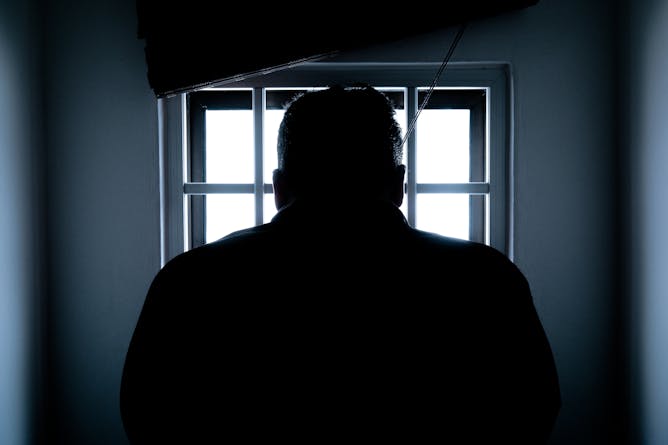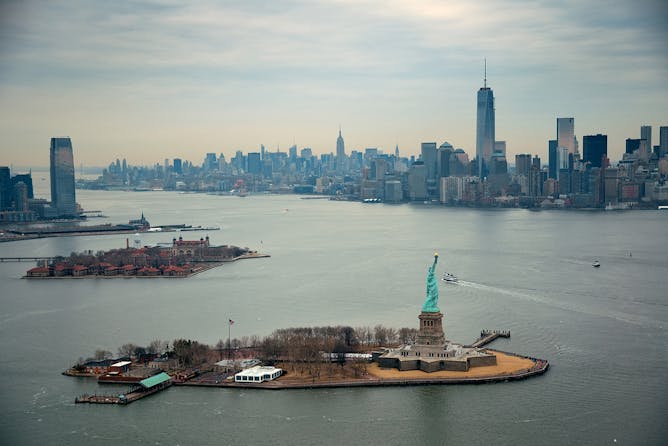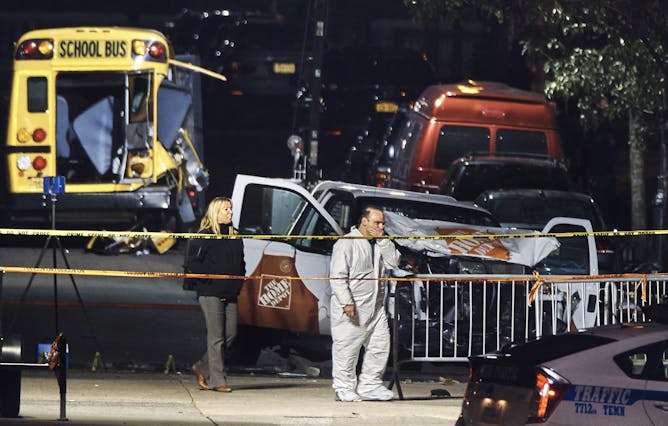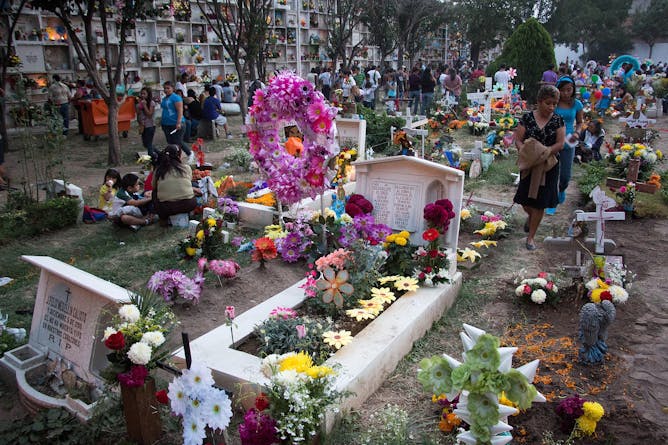| |
|
|
|
|
|
|
| |
|
Editor's note
|
|
If most of what you know about brain science you learned from the movies, you may have an outsized idea of what it can or should be used for to deal with crime and criminals. Yale clinical psychologist Arielle Baskin-Sommers – who has a research lab in a Connecticut state prison – writes that while the field is mostly not ready for primetime when it comes to determining things like guilt or innocence, there’s plenty of other solid neuroscience research that should change the way prisons work.
President Trump is calling for an end to the green card program that the attacker in the deadliest attack on New York City since 9/11 used to enter the United States. Commonly known as the “green card lottery,” the program awards about 50,000 visas a year. That would be a mistake, writes economist Ethan Lewis. “We would be giving up a program that benefits American workers with very little chance of a gain in safety.”
One thing that does need updating is our idea of how men like the accused attacker in New York City become radicalized. James Gelvin of UCLA explains the latest thinking.
At the beginning of November, many Mexicans, and those of Mexican ancestry celebrate “Día de los Muertos,” or the Day of the Dead, a practice similar to other observances around the world. As western societies move away from public mourning and grief becomes more private, University of Oregon’s Daniel Wojcik and Indiana University’s Robert Dobler, explain death rituals of other cultures and why they help in dealing with loss.
|
Maggie Villiger
Science + Technology Editor
|

|
|
Top stories
|

Neuroscience can help incarcerated brains.
Donald Tong
Arielle Baskin-Sommers, Yale University
Hollywood pushes a fantasy version of what neuroscience can do in the courtroom. But the field does have real benefits to offer, right now: solid evidence on what would improve prisons.
|

The Statue of Liberty casts a wary eye at the bike path that runs along the western edge of Manhattan, where the Oct. 31 attack occurred.
Songquan Deng/Shutterstock.com
Ethan Lewis, Dartmouth College
The president is urging lawmakers to end the program in the aftermath of the deadliest attack in New York City since 9/11. Doing so would be a mistake.
|

Police work near a damaged Home Depot truck on Nov. 1, 2017, after a motorist drove onto a bike path near the World Trade Center memorial.
AP Photo/Andres Kudacki
James L. Gelvin, University of California, Los Angeles
Sayfullo Saipov, the suspect in the Manhattan bike path attack, wasn't a devout Muslim. He cursed and came late to prayers. A terrorism expert explains why such a man may want to be a martyr.
|

Day of the dead at a Mexican cemetery.
© Tomas Castelazo, www.tomascastelazo.com / Wikimedia Commons, via Wikimedia Commons
Daniel Wojcik, University of Oregon; Robert Dobler, Indiana University
Many in the Western world lack the explicit mourning rituals that help people deal with loss. On Day of the Dead, two scholars describe ancient mourning practices.
|
|
|
|
|
Politics + Society
|
-
Scott L. Greer, University of Michigan
Why the Spanish Prime Minister keeps choosing a strategy of confrontation.
-
Marco Aponte-Moreno, St Mary's College of California
After the Maduro regime won Venezuela's recent gubernatorial elections, results are contested, people are desperate and the opposition has fractured. Can the resistance survive this setback?
-
Soledad Stoessel, National University of La Plata
Ecuador's new president, Lenin Moreno, has been disavowed by the party that brought him to power, after a harsh dispute with his predecessor.
|
|
|
|
|
|
|
|
Trending on site
|
-
Rachel Caufield, Drake University
Former Trump associates face charges including conspiracy to launder money, failure to register as a foreign agent and lying to the FBI. A law professor explains what it means and what happens next.
-
Dan Romer, University of Pennsylvania
In recent years, the notion of a structurally imbalanced teenage brain has been faulted for bad choices. A review of studies suggests that a deficit in brain development is not to blame.
-
Arash Javanbakht, Wayne State University; Linda Saab, Wayne State University
We may pretend that we do not like fear, but Halloween proves otherwise. Many of us enjoy being scared. But why?
|
|
|
|
| |
| |
|
|
|
|
|
|
|
|